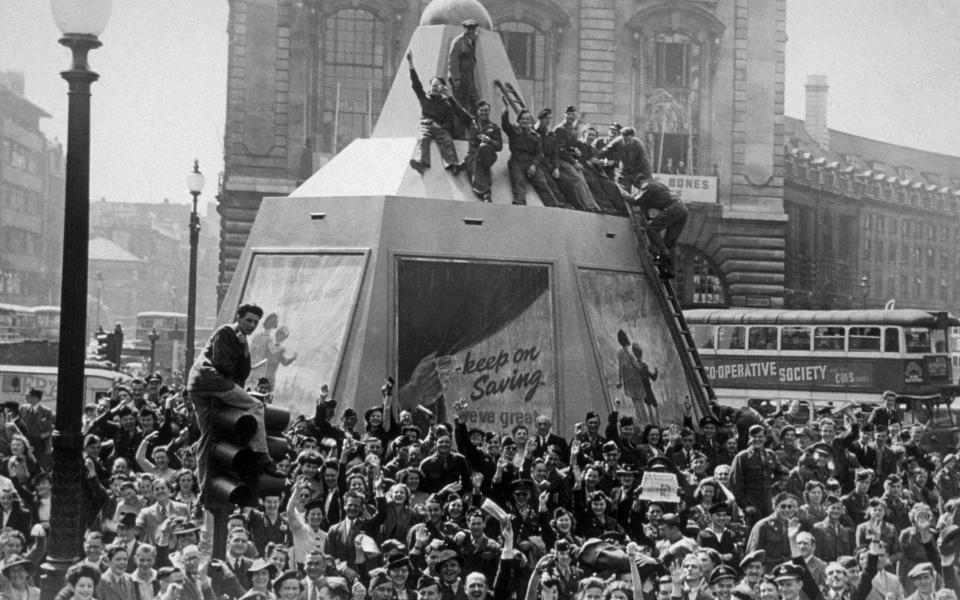Unsung heroes of the Forgotten Army should feel neglected no more

As the nation tuned to the BBC to hear the unfamiliar voice of the new Labour Prime Minister Clement Attlee declare that ‘the last of our enemies is laid low’ they came out onto the streets in carnival fashion bringing the curtain down on a global conflict that had lasted nearly six years.
Having started in Europe it ended in the Far East 75 years ago today on VJ-Day, the 15th August 1945. The final victory over Imperial Japan ended the longest campaign fought by the British in the Second World War, which started in December 1941 with a series of humiliating defeats and culminated in the blinding dawn of the atomic age with apocalyptic triumph in August 1945.

And so it seems curious that the war in the Far East seemed to go so unheralded at the time and that our principal instrument of victory, the Fourteenth Army, a remarkable collection of British, Indian, Gurkha, African and Burmese, should have felt so marginal that they called themselves the Forgotten Army.
It was after all only in Burma and the Philippines that large-scale land campaigns took place to defeat the major Japanese armies.
The Burma campaign was fought ostensibly for two reasons: to keep the road open to China and keep her in the fight against Japan, tying up Japanese divisions in the meantime that might have been used elsewhere against the Allies, and to reconquer a province of the British Empire, shoring up British imperial assets around the periphery which had been left woefully unprotected at the outbreak of war.
But to many Britons the war in the Far East seemed a secondary and very distant campaign fought across a vast geographic canvas most of it seemingly ocean.
It was the furthest theatre from home, about which very little seemed commonplace and that which was, distinctly remote from everyday experience at home, fighting a people much more difficult to understand and identify against than Nazi Germany.
Furthermore, Burma was a country like no other combining jungle, mountain, desert, dry plain, rivers and ocean, melting sun and drenching monsoon; it was a war of logistics, medicine, environment and culture as much as a war of manoeuvre.
And it was a war of extremes; of climate, isolation, deprivation and occasional cruelty during which a British and a Japanese Army fought not once but twice across the length and breadth of Burma before the Fourteenth Army finally delivered the greatest single defeat suffered by a Japanese land force during the war.
A miraculous triumph of arms and allies but bought at very considerable human cost of over 71,000 dead including some 12,000 British and Commonwealth prisoners who died in captivity. Perhaps it was partly this contemporary sense of under-appreciation and going unnoticed that gave rise to the exceptionally rich vein of post-war literature that the campaign threw up; from the victorious generals especially Bill Slim’s Defeat into Victory, surely a title to conjure with today, to the tactical commanders, Fergusson, Calvert and Masters spring to mind but also the soldiers’ stories, including my favourite wartime memoir of all, Quartered Safe Out Here by George MacDonald Fraser, in which he recounts in primary colours his teenage experience as an infantryman in Burma.

But today, those remarkable and diverse veterans of Slim’s Forgotten Army, a tiny and dwindling band scattered across the former Empire, need not feel neglected. This is the moment for us all to reflect on the extraordinary sacrifices made by those men and women and celebrate their inspiring achievements.
And although it is now 76 years since the victories at Imphal and Kohima set the Fourteenth Army on the road to final victory, the memorial on that battlefield contains a haunting epitaph that still resonates today, exhorting: When you go home, tell them of us, and say; for your tomorrow we gave our today.

So as the experience of the war passes into history and the living witnesses of the Burma road fade away, modern eyes are left with the images of steaming jungle, swollen rivers, glutinous mud, monsoon and mosquitos, amidst which human endeavour, ingenuity, tenacity and spirit triumphed.
Surely a soldier’s tale cut in stone to lift all hearts.
General Sir Mark Carleton-Smith KCB CBE ADC Gen. The Chief of the General Staff

 Yahoo News
Yahoo News 
